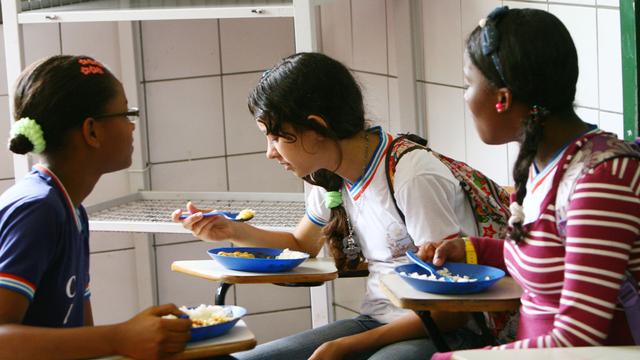2025-12-30 07:14:00
#Blakes7 Series A, Episode 11 - Bounty
GAN: Bounty hunters. They're going to sell us to the Federation.
BLAKE: But how did they get on board?
AVON: Gan?
VILA: It wasn't Gan's fault.
GAN: They used me and a voice synthesizer. It was very well planned.
2026-01-29 20:45:26
Rio de Janeiro state bans shark meat for school meals #AnimalRights
2026-02-27 18:55:53
Court docs from a New Mexico trial reveal internal divisions at Meta as Instagram teen safety initiatives conflicted with growth and engagement goals (The Atlantic)
https://www.
2026-01-30 20:37:37
Series D, Episode 04 - Stardrive
PLAXTON: Just the main ignition controls now.
[Scorpio flight deck]
AVON: One minute precisely, Doctor.
[Main drive chamber. Plaxton is still working.]
PLAXTON: Two more connections. Not long now.
[Scorpio flight deck]
https://blake.torpidity.net/m/404/434
2026-02-26 08:21:00
Frequency-Dependent Magnetic modulation of deposition morphology
S. K. Saroj, P. K. Panigrahi
https://arxiv.org/abs/2602.21789 https://arxiv.org/pdf/2602.21789 https://arxiv.org/html/2602.21789
arXiv:2602.21789v1 Announce Type: new
Abstract: This paper presents a novel approach for magnetic modulation of deposition morphology in an evaporating ferrofluid droplet. The magnetic field strength and ferrofluid concentration are kept unchanged, while the actuation frequencies are varied from 0.016 Hz to 5 Hz. In the absence of a magnetic field, a coffee-ring formation is observed and consistent with previous studies\cite{deegan1997capillary,deegan2000contact,saroj2019drying}. The application of a time-dependent magnetic field significantly modifies the deposition morphology. The periodic magnetic field induces the formation of multiple concentric rings during evaporation. The number of rings initially increases with increasing actuation frequency of the electromagnet. However, beyond a critical actuation frequency ($f_c = 0.2\,\text{Hz}$), the number of rings decreases. At higher actuation frequencies, magnetic particles preferentially deposit in the central region of the droplet, resulting in suppression of the coffee-ring effect. Additionally, the thickness of the inner rings and the ring spacing decrease with increasing actuation frequency up to critical actuation frequency. The transition from multi-ring formation to coffee-ring suppression is governed by the competition among magnetic forcing, capillary flow, and particle diffusion. The underlying physical mechanisms responsible for droplet dynamics and deposition morphology under periodic magnetic fields are evaluated using scaling arguments. The results demonstrate that diffusive particle transport plays a dominant role in determining the deposition pattern. A non-dimensional magnetic switching number, based on the magnetic perturbation timescale, is introduced as a control parameter to characterize the frequency-dependent deposition behavior.
toXiv_bot_toot
2026-02-28 21:03:25
🇺🇦 #NowPlaying on KEXP's #VarietyMix
The Beta Band:
🎵 Squares
#TheBetaBand
https://open.spotify.com/track/6yglIiqxr2yz9TI8zikNPU
2026-02-26 12:49:00
2026-02-25 16:07:37
Replaced article(s) found for cs.LG. https://arxiv.org/list/cs.LG/new
[1/6]:
- Towards Attributions of Input Variables in a Coalition
Xinhao Zheng, Huiqi Deng, Quanshi Zhang
https://arxiv.org/abs/2309.13411
- Knee or ROC
Veronica Wendt, Jacob Steiner, Byunggu Yu, Caleb Kelly, Justin Kim
https://arxiv.org/abs/2401.07390
- Rethinking Disentanglement under Dependent Factors of Variation
Antonio Almud\'evar, Alfonso Ortega
https://arxiv.org/abs/2408.07016 https://mastoxiv.page/@arXiv_csLG_bot/112959235461894530
- Minibatch Optimal Transport and Perplexity Bound Estimation in Discrete Flow Matching
Etrit Haxholli, Yeti Z. Gurbuz, Ogul Can, Eli Waxman
https://arxiv.org/abs/2411.00759 https://mastoxiv.page/@arXiv_csLG_bot/113423933393275133
- Predicting Subway Passenger Flows under Incident Situation with Causality
Xiannan Huang, Shuhan Qiu, Quan Yuan, Chao Yang
https://arxiv.org/abs/2412.06871 https://mastoxiv.page/@arXiv_csLG_bot/113632934357523592
- Characterizing LLM Inference Energy-Performance Tradeoffs across Workloads and GPU Scaling
Paul Joe Maliakel, Shashikant Ilager, Ivona Brandic
https://arxiv.org/abs/2501.08219 https://mastoxiv.page/@arXiv_csLG_bot/113831081884570770
- Universality of Benign Overfitting in Binary Linear Classification
Ichiro Hashimoto, Stanislav Volgushev, Piotr Zwiernik
https://arxiv.org/abs/2501.10538 https://mastoxiv.page/@arXiv_csLG_bot/113872351652969955
- Safe Reinforcement Learning for Real-World Engine Control
Julian Bedei, Lucas Koch, Kevin Badalian, Alexander Winkler, Patrick Schaber, Jakob Andert
https://arxiv.org/abs/2501.16613 https://mastoxiv.page/@arXiv_csLG_bot/113910356206562660
- A Statistical Learning Perspective on Semi-dual Adversarial Neural Optimal Transport Solvers
Roman Tarasov, Petr Mokrov, Milena Gazdieva, Evgeny Burnaev, Alexander Korotin
https://arxiv.org/abs/2502.01310
- Improving the Convergence of Private Shuffled Gradient Methods with Public Data
Shuli Jiang, Pranay Sharma, Zhiwei Steven Wu, Gauri Joshi
https://arxiv.org/abs/2502.03652 https://mastoxiv.page/@arXiv_csLG_bot/113961314098841096
- Using the Path of Least Resistance to Explain Deep Networks
Sina Salek, Joseph Enguehard
https://arxiv.org/abs/2502.12108 https://mastoxiv.page/@arXiv_csLG_bot/114023706252106865
- Distributional Vision-Language Alignment by Cauchy-Schwarz Divergence
Wenzhe Yin, Zehao Xiao, Pan Zhou, Shujian Yu, Jiayi Shen, Jan-Jakob Sonke, Efstratios Gavves
https://arxiv.org/abs/2502.17028 https://mastoxiv.page/@arXiv_csLG_bot/114063477202397951
- Armijo Line-search Can Make (Stochastic) Gradient Descent Provably Faster
Sharan Vaswani, Reza Babanezhad
https://arxiv.org/abs/2503.00229 https://mastoxiv.page/@arXiv_csLG_bot/114103018985567633
- Semantic Parallelism: Redefining Efficient MoE Inference via Model-Data Co-Scheduling
Yan Li, Zhenyu Zhang, Zhengang Wang, Pengfei Chen, Pengfei Zheng
https://arxiv.org/abs/2503.04398 https://mastoxiv.page/@arXiv_csLG_bot/114120014622063602
- A Survey on Federated Fine-tuning of Large Language Models
Wu, Tian, Li, Sun, Tam, Zhou, Liao, Xiong, Guo, Li, Xu
https://arxiv.org/abs/2503.12016 https://mastoxiv.page/@arXiv_csLG_bot/114182234054681647
- Towards Trustworthy GUI Agents: A Survey
Yucheng Shi, Wenhao Yu, Jingyuan Huang, Wenlin Yao, Wenhu Chen, Ninghao Liu
https://arxiv.org/abs/2503.23434 https://mastoxiv.page/@arXiv_csLG_bot/114263024618476521
- CONTINA: Confidence Interval for Traffic Demand Prediction with Coverage Guarantee
Chao Yang, Xiannan Huang, Shuhan Qiu, Yan Cheng
https://arxiv.org/abs/2504.13961 https://mastoxiv.page/@arXiv_csLG_bot/114380404041503229
- Regularity and Stability Properties of Selective SSMs with Discontinuous Gating
Nikola Zubi\'c, Davide Scaramuzza
https://arxiv.org/abs/2505.11602 https://mastoxiv.page/@arXiv_csLG_bot/114538965060456498
- RECON: Robust symmetry discovery via Explicit Canonical Orientation Normalization
Alonso Urbano, David W. Romero, Max Zimmer, Sebastian Pokutta
https://arxiv.org/abs/2505.13289 https://mastoxiv.page/@arXiv_csLG_bot/114539124884913788
- RefLoRA: Refactored Low-Rank Adaptation for Efficient Fine-Tuning of Large Models
Yilang Zhang, Bingcong Li, Georgios B. Giannakis
https://arxiv.org/abs/2505.18877 https://mastoxiv.page/@arXiv_csLG_bot/114578778213033886
- SuperMAN: Interpretable and Expressive Networks over Temporally Sparse Heterogeneous Data
Bechler-Speicher, Zerio, Huri, Vestergaard, Gilad-Bachrach, Jess, Bhatt, Sazonovs
https://arxiv.org/abs/2505.19193 https://mastoxiv.page/@arXiv_csLG_bot/114578790124778172
toXiv_bot_toot
2025-12-29 19:27:49
Series B, Episode 13 - Star One
JENNA: Your carrier beam is the fastest way to contact Servalan.
ORAC: That is not the purpose for which it was developed.
https://blake.torpidity.net/m/213/443 B7B5




